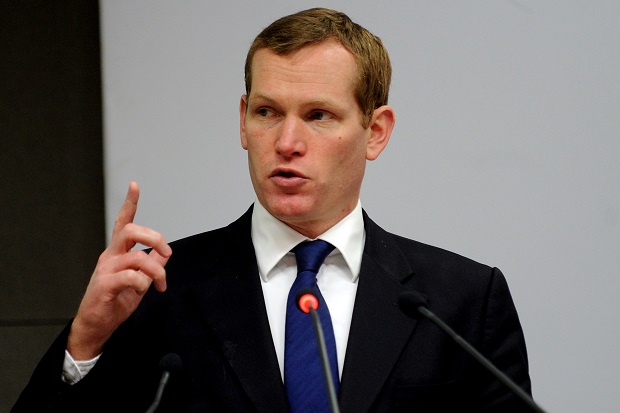Poor Jeremy Browne. Sacked for believing in the government in which he served*. Then again, no-one claims politics, or life, is fair. So it is good to see Mr Browne taking his revenge. He has written a book and been speaking to the papers, telling the Telegraph that:
“Our lack of self confidence and our willingness to be defined as being a party of timid centrists rather than bold liberals means people look at us and may be reassured that we will be a brake on the other two, but that’s hardly a reason to vote for us.
“Nick Clegg took a risk to take us from being party of protest to party of government, but we look like we’ve turned into a party of protest in government.
“We are the diluting agent. The party shows resilience and fortitude given the battering we have had. But we have defaulted instead to trying to cause the least offence to the most people. We have sold ourselves as a brake in government rather than an accelerator.
“I am certain in my own mind that authentic, unleashed, liberalism is what Britain needs. The problem my party has is we lack the confidence to champion that, despite having liberal in our title. That contributes to our chronic weakness in the eyes of the public who are uncertain what we stand for.”
True that. All of it. The Lib Dems have positioned themselves as the restraining party in this ministry just as they would should they form a government in coalition with Labour after the next election. This is all very well and good but it is not quite enough.
Clegg’s backbenchers and party members bear some of the blame for this. The Lib Dem leader has been held hostage by his so-called friends. And Vince Cable. Nevertheless, Clegg cannot escape responsibility for the predicament in which his part finds itself: blamed for everything, receiving credit for nothing.
One of the problems with the coalition was that, almost from the beginning, both parties kept an eye on the 2015 election. That meant taking positions for the sake of differentiating themselves from their erstwhile partners in government. This made some sense but it came at a heavy cost too, robbing the government of energy, purpose and coherence.
Clegg’s “A Lib Dem in every pot” approach helped ensure that the government moved too slowly where it moved at all (with the possible exception of education) and too often became a ministry of half-measures. At least some of the blame for the shortcomings at health, transport, the environment and the Treasury stems from this.
Did it have to be this way? Perhaps not. Remember, a Tory Lib Dem deal was supposed to be impossible. Almost all the Westminster sages agreed on that. And yet the sages were not wrong to predict that the government would not be a happy one. It has been held together by external pressure more than by its internal logic. This too has weakened it, draining it of purpose and, as Browne suggests, its reforming zeal.
Again, the demands of party management – for Clegg and Cameron alike – may have necessitated this. Nevertheless it has been unfortunate. There was sufficient overlap between Cameron’s liberal Toryism and Clegg’s Orange Book liberalism for there to have been a de facto, if also temporary, alliance of principle as well as of mere convenience.
Neither leader has had the courage, strength or perhaps even desire to make good that promise, however. The result has been a government that has taken at least a step back for every two paces it has marched forward.
Not a dismal or disastrous government by any means. It has some real achievements. But still, you sense, a government that has achieved less than it could have had it made a virtue of the compromises of coalition instead of accepting them grudgingly and, often, half-heartedly.
Or, to put it another way, if the coalition had made the best possible fist of governing Britain Jeremy Browne would have been in the cabinet and some of his Lib Dem “colleagues” would not.
Roads not taken and all that stuff, you know?
*I suppose I should say that Lib Dem types dispute this. But that’s how it seemed to the rest of us.







Comments